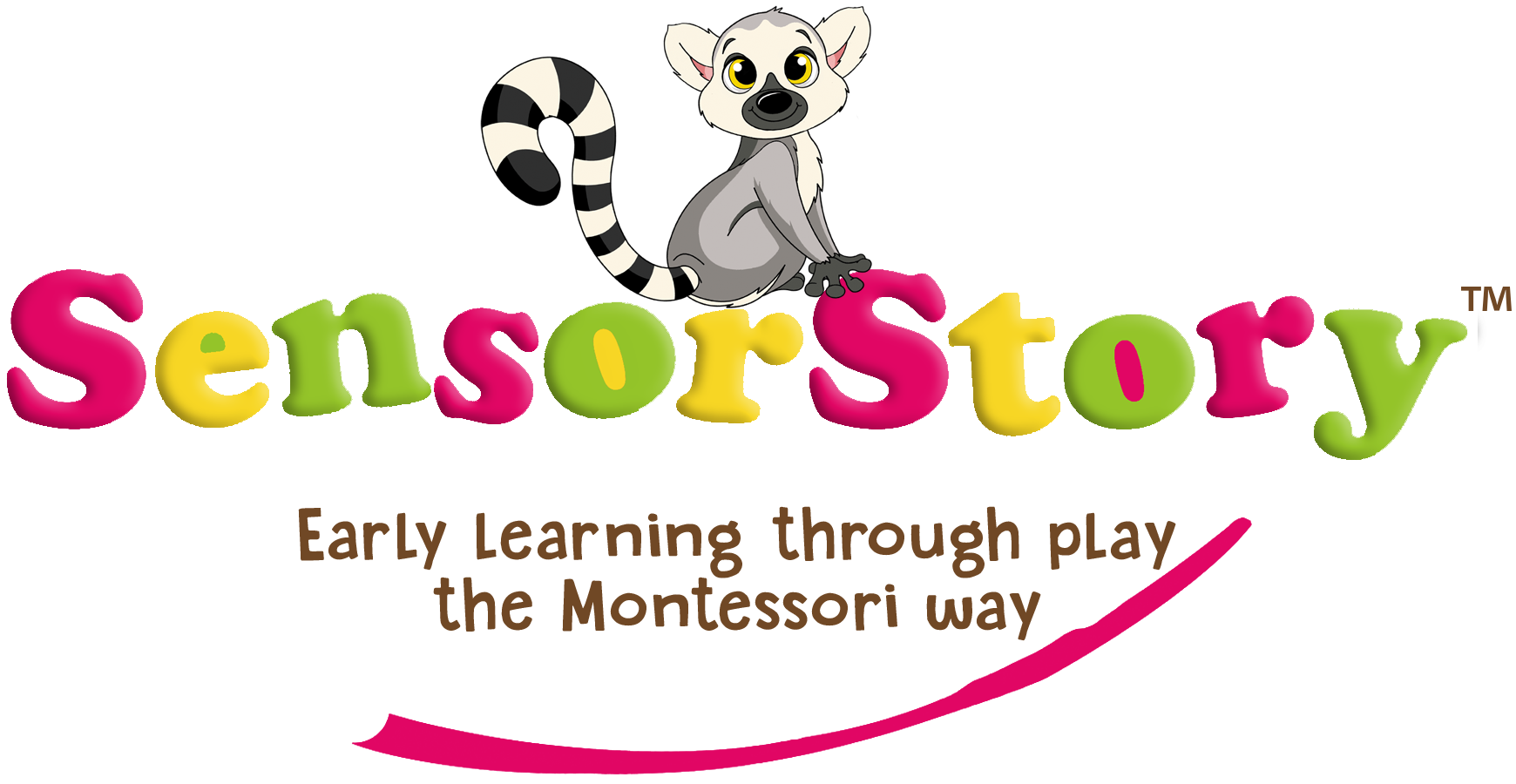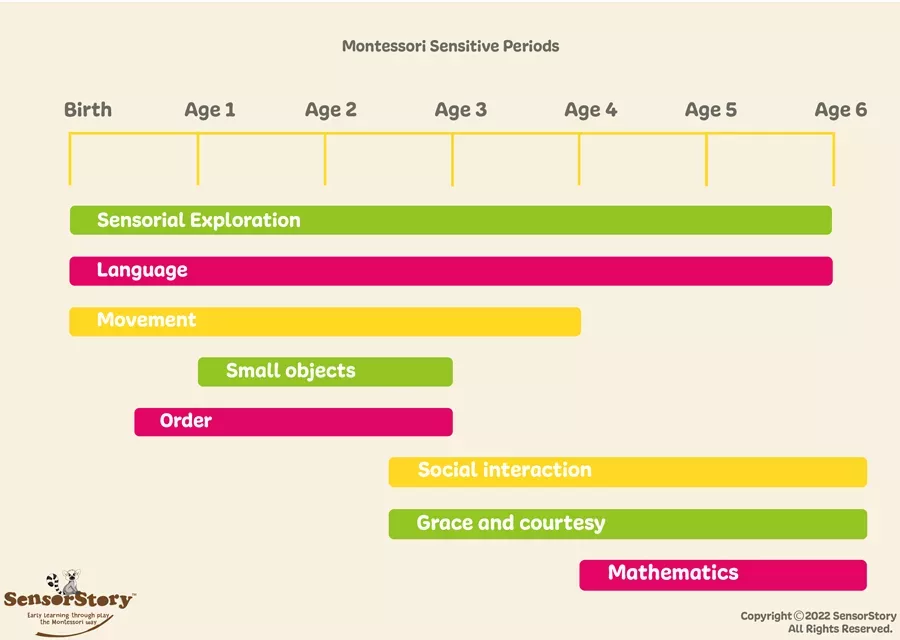Discussion of sensitive periods immediately brings to mind a picture of moody teenagers – but it actually refers to a period of time when a child’s interests are focused on developing a particular skill. According to Montessori Theory, the most important sensitive periods occur between birth & age six – Montessori discovered that children are self-motivated to learn from their environments. She identified eight different sensitive periods occurring from birth through to six years old;
❶ order,
❷ sensorial exploration,
❸ movement,
❹ small objects,
❺ grace & courtesy,
❻ language,
❼ social interaction,
❽ mathematics.
A sensitive period is a time when a child shows uncharacteristically high motivation to engage in activities that align with their focus during that time. During a sensitive period, your little one will be deeply interested in a specific subject & will show intense passion & commitment – this makes it extremely easy for them to unconsciously acquire certain skills & abilities related to that particular interest during this time. They will have a fierce interest in repeating certain actions related to this subject, where a new skill will emerge out of this repetition. When the sensitive period is over, this intense desire is gone, & so too is the opportunity to learn deeply & easily. These periods of special sensitivity are only temporary & fade once the aim of completing a particular stage in their development is accomplished.
If we miss a sensitive period, this certainly doesn’t mean that they won’t learn a specific skill later on! Missing a sensitive period simply means that learning that specific skill will require a conscious & longer effort. For example: Dr. Montessori observed that a human’s sensitive period for language is from birth to 6 years old. During this time a child’s ability to learn a language, & to learn a second language, is easy & takes an unconscious effort to learn. If we ‘miss’ this period & decide later on in life to learn a second, or third language, this learning will require a conscious effort & will take a much longer time to master.
The AMI defines sensitive periods as:
“A child in a sensitive period is believed to exhibit spontaneous concentration when engaged in an activity that matches a particular sensitivity. For example, children in a sensitive period for order will be drawn to activities that involve ordering. They will be observed choosing such activities and becoming deeply concentrated, sometimes repeating the activity over and over, without external reward or encouragement”.
You may be wondering how to recognise sensitive periods in your little one’s development – have you ever wondered why your babe wants to repeat the same story a million times, or climb up onto the sofa & back down again over & over? These are common signs of sensitivity – characteristics of sensitive periods may include copying, intense concentration, & compulsive or obsessive behaviours.
Interrupting your little one while they are in the middle of an intense sensitive period can result in a powerful emotional response – such as a tantrum. The ‘terrible twos’ are often actually your little one expressing a powerful reaction to a small disruption in order as they are likely to be in a sensitive period for learning, & their work is being interrupted.
Your little one is now entering the sensitive period of wanting to help. You may see them putting a huge amount of effort into helping you around the house, such as wiping up spills & wanting to help with the laundry. Giving them plenty of opportunities to offer a helping hand, without rewards/money, will make them feel valuable & give them a sense of peace & importance. They will have a natural desire to contribute & will gain a lot of confidence, finding great joy in having their own ‘responsibilities’.
To see more on all the periods of sensitivity, see our article What is Montessori.

